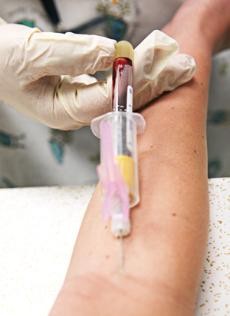You may think his smile is infectious, but the Women’s Resource Center wants to make sure that’s the only infectious thing about him.
For the second time this school year, there will be free HIV testing on the UA campus for students.
The WRC and Pima County Health Department are performing free HIV testing today in the Center for Student Involvement and Leadership in the Student Union Memorial Center from 11 a.m. to 3 p.m., said Jai Smith, WRC health and sexuality intern and undeclared sophomore.
The free testing is in honor of National Women and Girls HIV/AIDS Awareness Day and is part of the WRC’s “”Herstory”” Month, said Smith.
“”We did target (the free testing) toward people in the LGBT community and minority women,”” Smith said. However, the testing is open to everyone.
Minority women, especially black women, have the highest rates of female HIV infection according to the Centers for Disease Control and Prevention.
“”You can’t generalize those (statistics) to compare to college students,”” said LeeAnn Hamilton, assistant director of health promotions and preventive services with Campus Health.
In 2006, 14 percent of people diagnosed with HIV or AIDS were between the ages of 13 and 24, according to the CDC.
“”That’s our age group,”” which is why it’s important for students to understand HIV and know their status,”” Smith said.
College students don’t think HIV is happening to people they know or people in their community, Hamilton said.
“”There are people on campus living with HIV,”” she said. “”The students are kind of complacent about HIV in general.””
Center for Disease Control statistics show that even though HIV isn’t as prevalent in the college-age generation as it is in older generations, the age group is still being affected.
“”When we’re young we have a sense of invincibility about us,”” Smith said. “”We need to know there are things that can hurt us.””
HIV is infecting college students and that’s why the WRC is trying to bring HIV awareness to campus, he said.
“”Whether sexually active or not, it’s affirming to know your status,”” Smith said.
The most common STDs that Campus Health employees see are Chlamydia, Herpes and genital warts, which aren’t as deadly as HIV but Hamilton said “”if people have any STD they’re at greater risk for HIV.””
“”If they have a penis or are having sex with a penis – put a condom on it,”” Hamilton said.
Although sex isn’t the only way to contract HIV – sharing dirty needles and transmission from mother to child are other ways – it’s a common way for college students to come into contact with HIV, she said.
Hamilton said she supports the free testing and hopes it will get students to pay more attention to the threat of HIV.
The demand for last semester’s free HIV test was so great that the 25 spots weren’t enough and 50 people had to be placed on the waiting list, Smith said.
For this round of testing, the WRC increased the hours of testing and has 50 spots open, but by last Thursday, almost all the spots were filled, Smith said.
Campus Health tests thousands of students for HIV every year but has had very few positive tests since they started testing in the 80s, Hamilton said.
However, if a student does test positive, there are lots of different treatments available, she said.
An HIV test costs around $30 at Campus Health and $15 through the Pima County Health Department.
“”It’s hard to come by a free HIV test”” so students should seize this opportunity, Hamilton said.









